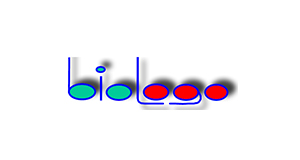Collagen Type IV, human
Collagen Type IV, human, IgG1, Clone: COL 94
Artikelnummer
BILCO105
Verpackungseinheit
1 ml
Hersteller
BioLogo
Verfügbarkeit:
wird geladen...
Preis wird geladen...
Clone: COL 94
Background: Type IV Collagen is a non-fibrillary network of different alpha-chains: alpha 1(IV) to-alpha 6(IV). It is typically found in basal membranes of different organs (e.g. skin, lens, lung, kidney). Collagens consist of a family of highly specialized glycoproteins of which at least 16 genetically distinct types are known to date. The basal unit of a collagen molecule consists of a triple-helical structure formed by 3 alpha-chains. Predominant amino acids are glycine, proline and hydroxproline. Regularly also lysines and hydroxylysines occur, which are responsible for cross-linkage and glycosylation of the protein chains. Different composition of alpha-chains and different glycosylation contribute to the high variability of collagens in different tissues and organs. Human Collagen IV, no cross-reactivity with other Collagen types, Vitronectin, Fibronectin or Chondroitinsulfate.
Positive Control: Human skin, placenta or lens capsule
Immunogen: Purified human Collagen IV
Purification Method: Antibody solution in stabilizing phosphate buffer pH 7.3. Contains 0.09 % sodium azide**. The volume is sufficient for at least 100 immunohistochemical tests (100 µl working solution / test). Use appropriate antibody diluent e.g. BIOLOGO Art .No. PU002.
Concentration: app. 100 µg/ml
References: 1. Odermatt B.F., Lang A.B., Rüttner J.R., Winterhalter K.H., and Trüeb B. (1984) Monoclonal antibodies to human type IV collagen: useful reagents to demonstate the heterotrimeric nature of the molecule. Proc. Natl. Acad. Sci. 81; 7343-7347.
UniProt: P02462 (CO4A1_HUMAN) ; P08572 (CO4A2_HUMAN); P29400 (CO4A5_HUMAN);
Caution: *These antibodies are intended for in vitro research use only. They must not be used for clinical diagnostics and not for in vivo experiments in humans or animals. ** The preservative sodium azide is known to be poisonous and potentially hazardous to health. It should be handled only by trained staff. Despite of the product's low azide concentration it must be handled with care. Dispose according to regional rules!
Background: Type IV Collagen is a non-fibrillary network of different alpha-chains: alpha 1(IV) to-alpha 6(IV). It is typically found in basal membranes of different organs (e.g. skin, lens, lung, kidney). Collagens consist of a family of highly specialized glycoproteins of which at least 16 genetically distinct types are known to date. The basal unit of a collagen molecule consists of a triple-helical structure formed by 3 alpha-chains. Predominant amino acids are glycine, proline and hydroxproline. Regularly also lysines and hydroxylysines occur, which are responsible for cross-linkage and glycosylation of the protein chains. Different composition of alpha-chains and different glycosylation contribute to the high variability of collagens in different tissues and organs. Human Collagen IV, no cross-reactivity with other Collagen types, Vitronectin, Fibronectin or Chondroitinsulfate.
Positive Control: Human skin, placenta or lens capsule
Immunogen: Purified human Collagen IV
Purification Method: Antibody solution in stabilizing phosphate buffer pH 7.3. Contains 0.09 % sodium azide**. The volume is sufficient for at least 100 immunohistochemical tests (100 µl working solution / test). Use appropriate antibody diluent e.g. BIOLOGO Art .No. PU002.
Concentration: app. 100 µg/ml
References: 1. Odermatt B.F., Lang A.B., Rüttner J.R., Winterhalter K.H., and Trüeb B. (1984) Monoclonal antibodies to human type IV collagen: useful reagents to demonstate the heterotrimeric nature of the molecule. Proc. Natl. Acad. Sci. 81; 7343-7347.
UniProt: P02462 (CO4A1_HUMAN) ; P08572 (CO4A2_HUMAN); P29400 (CO4A5_HUMAN);
Caution: *These antibodies are intended for in vitro research use only. They must not be used for clinical diagnostics and not for in vivo experiments in humans or animals. ** The preservative sodium azide is known to be poisonous and potentially hazardous to health. It should be handled only by trained staff. Despite of the product's low azide concentration it must be handled with care. Dispose according to regional rules!
| Artikelnummer | BILCO105 |
|---|---|
| Hersteller | BioLogo |
| Hersteller Artikelnummer | CO105 |
| Verpackungseinheit | 1 ml |
| Mengeneinheit | STK |
| Reaktivität | Human, Primate |
| Klonalität | Monoclonal |
| Methode | Immunohistochemistry (frozen), Immunohistochemistry (paraffin), Western Blotting |
| Isotyp | IgG1 |
| Wirt | Mouse |
| Produktinformation (PDF) | Download |
| MSDS (PDF) | Download |

 English
English







